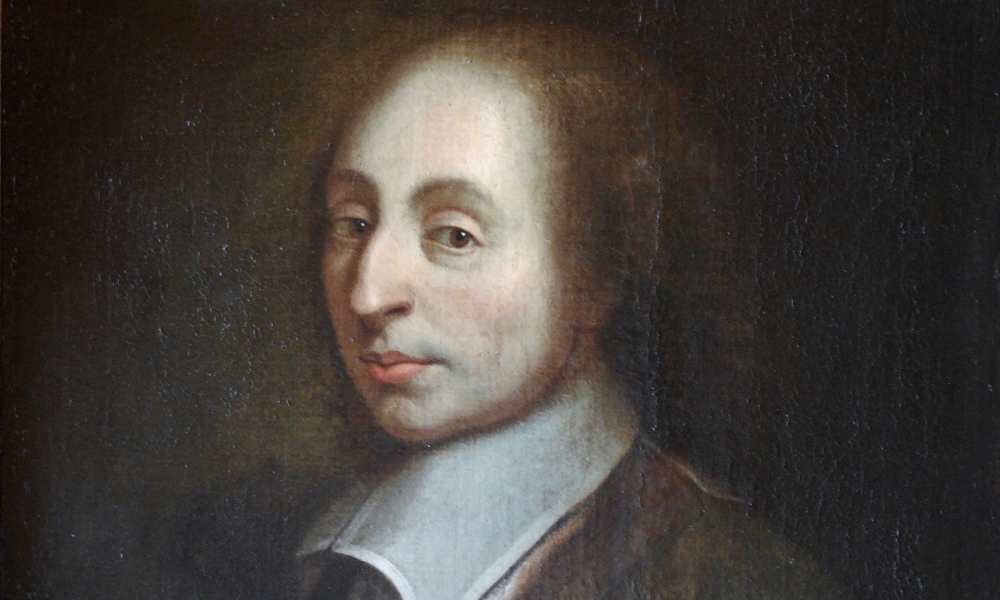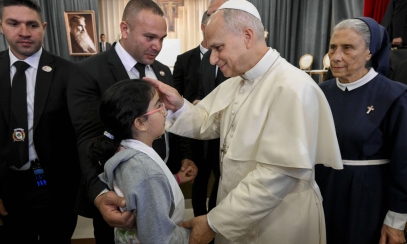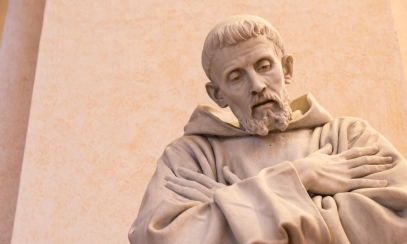
Model of Evangelization for Modern Age
June 23, 2023 | French mathematician and philosopher Blaise Pascal, who lived his Christian faith boldly while dedicating his immense intellect to solving the practical problems of the world around him, remains an exemplar of evangelization to Catholics 400 years after his birth, Pope Francis wrote in an apostolic letter.
June 23, 2023 | French mathematician and philosopher Blaise Pascal, who lived his Christian faith boldly while dedicating his immense intellect to solving the practical problems of the world around him, remains an exemplar of evangelization to Catholics 400 years after his birth, Pope Francis wrote in an apostolic letter.
In the letter published June 19, titled "Sublimitas et Miseria Hominis," Latin for "The Grandeur and Misery of Man," the pope wrote that the life and writings of Pascal are "helpful to encourage Christians in our day, and their contemporaries of good will, in the pursuit of authentic happiness."
The French thinker, who made breakthroughs in probability theory and physics -- the international unit for pressure is named after him -- experienced a religious conversion at the age of 31; his most celebrated philosophical work "Pensées" (Thoughts) was published posthumously and intended to be a defense of Christianity.
Pope Francis said Pascal's unwavering commitments to both faith and reason demonstrate the need for Christians today to "avoid the temptation to present our faith as an incontestable certainty evident to everyone."
Rather, the philosopher's "confidence in the use of natural reason, which unites him to all seekers of truth, enabled him both to acknowledge its limits and to be receptive to the supernatural reasons of divine revelation," the pope wrote.
Pascal understood his faith to be fully compatible with reason and attempted to share his "passionate love for Christ and for serving the poor" with non-Christians through reason, said Pope Francis. "Here we see a completely respectful and patient form of evangelization our generation would do well to imitate."
In his writings Pascal always taught that "reality is superior to ideas," and that reason alone is insufficient in delivering humanity the happiness and fulfillment it desires, the pope said.
"Yet while faith is reasonable it remains a gift of God and may not be imposed," the pope wrote. "Only God's grace enables the human heart to know God and to live a life of charity."
Pope Francis also addressed the philosopher's association with Jansenism, a Catholic theological movement occupied with reconciling the ideas of free will and divine grace which was condemned by the Vatican in the mid-17th century. He said that while some of Pascal's statements "do not ring true," his position on grace "was set out in perfectly Catholic terms at the end of his life."
Presenting the pope's letter at a news conference June 19, Cardinal José Tolentino de Mendonça, prefect of the Dicastery for Culture and Education, said that Pascal's writings "unite everyone, believers and non-believers, people of science and of faith, philosophy, mathematics, engineering."
"He unites spirituality to a more practical vision of the world; he is a true beacon," the cardinal said.
Pope Francs chose to write the letter about Pascal since he regularly cites Pascal in his speeches and writings, Cardinal Tolentino said, and the French philosopher makes up part of the pope's "spiritual constellation" as well as the DNA of all Christians throughout generations.
Pope Francis said at his general audience June 7 that he is planning to publish another apostolic letter, this one on St. Thérèse of Lisieux, a 19th-century French Carmelite nun who is patron saint of missions and a doctor of the church.



